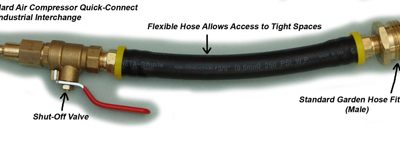By Bob Difley
 “This year’s record-shredding spike in gasoline prices has finally ended,” says the San Francisco Chronicle in an article last Tuesday (July 29), “with prices falling by more than a penny per day.” Data from the US Energy Information Administration showed that American drivers used 3.2% less gasoline in the last four weeks than during the same period last year. The AAA Auto Club found that 1.3 fewer Americans traveled during the 4th of July weekend than a year ago, the first time travel has dropped in a decade on major holiday weekends. “Consumers have definitely sent a message,” said an AAA spokesperson.
“This year’s record-shredding spike in gasoline prices has finally ended,” says the San Francisco Chronicle in an article last Tuesday (July 29), “with prices falling by more than a penny per day.” Data from the US Energy Information Administration showed that American drivers used 3.2% less gasoline in the last four weeks than during the same period last year. The AAA Auto Club found that 1.3 fewer Americans traveled during the 4th of July weekend than a year ago, the first time travel has dropped in a decade on major holiday weekends. “Consumers have definitely sent a message,” said an AAA spokesperson.
Could it be that the lesson of supply and demand we learned in Economics 101 really works? Don’t rush out to buy that 40-foot diesel pusher just yet, however. Oil prices, being an international commodity, will rise and fall on rumors, fluctuating demand, threats of disruption to oil fields from terrorists, severe weather, interpretations of new events, statements by the political candidates, and the whims of oil futures speculators to name a few. An economics professor at Carnegie Mellon University says that oil could swing anywhere from $50 a barrel during a global recession to $250 if we end up at war with Iran. But the underlying force that will ultimately drive oil prices is the rising consumption of energy and oil of the emerging nations of India and China, whose billion plus populations want the quality of life that we have, including an automobile in every garage.
We can’t do much about that, but there are a few things that we can do in this country, since we are still the largest consumer of oil (about a quarter of world production), to keep its price from rising at the now-familiar pace that sends chills down our spines. One way, as the Chronicle pointed out, is to drive less. That’s not a hard goal to accomplish, and many of the responses to these blog posts have indicated that we RVers are doing just that. Another way is to reduce our highway speed to 55 mph, maybe even lower the official speed limit. That is going to be harder for most Americans to get behind. We like our speed, however, many blog responders have also stated that in addition to driving less they have slowed down, with many reporting considerable savings by increasing their miles per gallon. Along with that goes following some other conservative driving tips, like avoiding jack-rabbit starts, accelerating at a moderate rate when entering freeways, and shutting off the engine when stuck in road construction.
With all the discussion of how drilling offshore or in ANWR, building electric cars and hybrids, switching to biofuels, hydrogen fuel cells, wind, and solar power, will solve our oil addiction, the quickest way to gas price relief—the right now kind of relief–is to simply use less, lower the demand. That we can do now, we don’t need government help, breakthrough technology, creation of a massive national fueling system infrastructure, or new laws passed. Just dig out that old Schwinn cruiser and peddle off.





Carey G. Eason
I just started selling(since May) a ,fuel catalyst called EnviroMax Plus, I have gained as much as 4.6 MPG in one of my cars 3.7 in my wifes Altima, and the least improvement,was in my 86 Corvette 1.1( it only takes .8 MPG gain to pay for the product), it is warrenty safe , & will lower emissions as much as 80%!
You can learn more on my web sites
http://www.rodsncustoms.com or
http://www.icareaboutit.com/3140461
Or you can listen on 1-973-854-1366 #1,then contact me at 307-257-7408.
I contacted one of the RV clubs that visited us here in Gillette WY.( I won’t mention their name) But the club president was more interested in selling me a booth( which I didn’t have time to set at a booth for a week at that time) than to share the information with his friends & save them money on their fuel costs.
I’am curious why anyone wouldn’t want to not only save money, but help with the enviroment?
If anyone would like more information & maybe make money yourself contact me at one of these web sites.
gary darby
A fuel additive that works, I have tested this in my class C, ford 450 and am saving 15 % on my fuel bill, and my motor runs much cleaner, with more power, If there is any RVer on Vancouver Island B.C I will give you a bottle for FREE, thats how confident I am, I cannot believe that people dont use this all the time, with fuel prices as they are
Jim Burnett
“…the quickest way to gas price relief—the right now kind of relief–is to simply use less, lower the demand.”
You’re 100% correct, Bob, and as you point out, we can all contribute to that lower demand by taking the steps you mention.